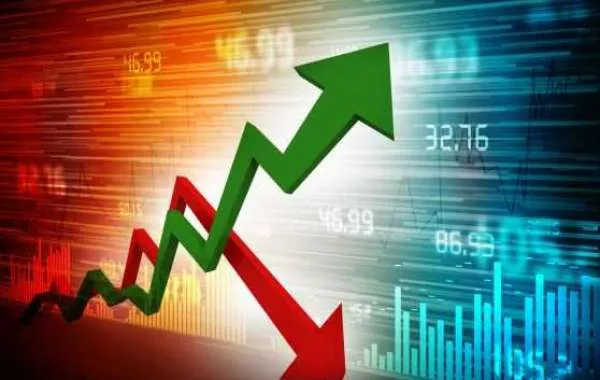Performance defines the valuation of a company, says Kroll MD Ross Hostetter
Global risk and financial advisory company Kroll believes that in the present market condition, company valuations could see a reset, with investors taking a harder look at business performance and fundamentals.
The COVID-19 pandemic years, especially in 2021 and the first half of 2022, witnessed a never before seen venture capital funding bull run. However, the environment turned negative in the second half of 2022, and it’s continuing.
Higher inflation, rising interest rates, and a war between Ukraine and Russia, among others, have put the global markets under a lot of pressure. Globally, central banks are increasing interest rates to tame inflation, curbing the supply of money in the market, and many companies also let go of many workers to save cash.
A report from Bain & Company noted that private equity investments declined from around $1 trillion in 2021 to $654 billion in 2022. Similarly, global venture capital investment also dropped by 32% in 2022 to $483 billion compared to 2021, Dealroom.co reported.

This has created a funding winter environment in the market, creating more challenges for companies. Amid all the hullabaloo, companies and investors are rethinking how to appropriately value their businesses, especially those not listed on bourses.
To discuss more on this, EnterpriseStory spoke to Ross Hostetter, Managing Director and Global Alternative Asset Advisory Leader at Kroll, a New York-headquartered risk and financial advisory solutions company with a global presence.
Hostetter believes there should not be any changes in the fundamentals of determining a company’s valuation. They should be valued based on market indices and individual performances.
Edited excerpts from the interview:
EnterpriseStory [ES]: How will the present financial crisis in the US and Western Europe impact the fund flow from investors?
Ross Hostetter [RS]: I think it's way too early to say where we are, and it creates uncertainty, creates risk, and a risk premium that will come along with that. From an investor's point of view, at a minimum, you're gonna pause where you put more money to work.
Beyond that, structuring will be different, probably smaller cheques, more terms favourable to the investor, and ultimately, a premium will come in at costs. I think that's to be expected until the market begins to settle down, but we will have to wait and see.
Investors are going to take a longer, harder view before they put money at risk. This is the kind of constant dynamic between the investor and the investment company. In 2021, it was an investment company with massive valuations, where the investors had the dollars and wanted to deploy them. But when capital is tight, people are nervous, the pendulum swings back in the direction of the investors.
ES: Will there be a change in how valuations are done for private companies, especially startups?
RH: Last year was the most challenging time to value illiquid assets I've seen since March 2020, when COVID-19 hit with full force. Before that, it was the financial crisis.
The challenge in the private market, when there's market volatility, is that you're trying to evaluate two things.
One is how the market is pricing a given level of risk, which can be observed in the public space through multiples, or in the credit space through indices published around particular benchmarks.
The other piece to consider is what is the performance of a business. Is the investment piece still intact? Is the company still growing, irrespective of what is happening in the market?
Funds have to balance these two pieces when they strike and add or create a mark for a particular position.

What made it challenging in 2022 was that we were coming off peak valuations from 2021, so a lot of the air was let out in the multiples. But what you aren't seeing is underperformance in the portfolio companies.
If you're a manager of that position and still have the conviction that the thesis is intact, you might reflect that you didn't move your valuations up to the level of the market in the first place. So, maybe, there's a bit of a cushion in the valuations.
As long as the performance and investment thesis are held, you're not likely to take a big hit on valuations, even though there might be noise or volatility in the market. That's what we saw in 2022.
If an investor has underperformance in their portfolio, and that too in a cash-constrained market, they will be able to extract better terms. So, you'll see fund valuations come down. I think that's the dynamic at play. But it's very challenging.
ES: Is Kroll now looking at the valuation model from a different perspective?
RH: This is the point that we tried to really drive home in March 2020 when COVID-19 spread. When the market fell apart, almost overnight— it happened around quarter-end—it was terrible timing for everybody in our space. People were panicking, like, what did we do, and it was daily. I mean, it was literally day by day.
If you have a fundamental valuation approach and a well-designed and appropriate policy, it works—whether the markets are up, down, or flat. It doesn't matter; you stick to the fundamentals. I think that's what we have to do here in this market.
The fundamentals matter at each point in time. So, you do have to reflect on what's happening in the market at any given point in time. But, in terms of how you think about valuation and the methodologies you use, the fundamental approach or other approaches you would use should not change over time, but the inputs and assumptions will.
ES: How important is it to install a governance standard within an organisation to determine valuation?
RH: I do think that governance is paramount, and we have quite a lot of good guidance out there around governance and how evaluations are done. There's one part of it—actually creating the valuation. But there's a bigger part around the governance of who can create the valuation. Who inside a company can sign off on it, and importantly, who should not.
Edited by Suman Singh






